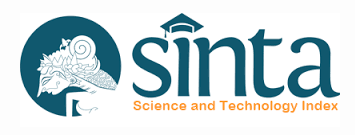KONTRIBUSI GERAKAN USAHA PEMBARUAN PENDIDIKAN ISLAM (GUPPI) TERHADAP PEMBAHARUAN PENDIDIKAN ISLAM DAN PENGEMBANGAN DAKWAH
Abstract
This study discusses the efforts GUPPI in the reform of Islamic education and the contribution GUPPI in education reform effort Islam.The eimed this study was to determine the effort GUPPI in Islamic education reform effort and to determine the contribution GUPPI in the reform of Islamic education. This type of research is a field research (field research) are implemented in Gowa. This research is descriptive qualitative, using the sociological approach, historical and anthropological. Data collected through observation, interviews and documentation. Sources of data obtained through primary data and secondary data. The data obtained are then processed in a deductive, inductive and comparative then presented, is reduced and verified as well as the conclusion. The results showed that, GUPPI efforts in the improvement of education is to adapt the curriculum with the curriculum in force at the National Education Ministry, improve infrastructure, and to add teachers and improve the welfare of teachers' honorarium. Contributions GUPPI in an attempt to reform Islam is to develop the organization as a means of improving and developing faith and righteous deeds, GUPPI increasing role in the implementation of Law Number. 20 of 2003 on National Education System. Realizing the social value system that is capable of filtering and National anticipate cultural values of national and global as well as seek advice and guidance facilities and mosque in vocational schools and general principles of spontaneous and self-help.References
Ahmadi, Memahami Metodologi Penelitian Kualitatif. Malang: UM Press, 2005
Arifin M, Filsafat Pendidikan Islam, Jakarta: Bumi Aksara 1994
Azra, Azyumardi, Pendidikan Islam Tradisi dan Modernisasi Menuju Milenium Baru. Jakarta: Logos Wacana Ilmu 1999.
Bugin, Burhan. Penelitian Kualitatif Jakarta: Prenada Media Group 2003.
Collins Randall. Conflict Theory and The Advance Macro Historical Sosiology.
Editor. George Ritzer. New York: Columbia University Press, 1990.
Daya, Burhanuddin, Gerakan Pembaharuan Pemikiran Islam: Kasus Sumatra Thawalib Yogyakarta PT. Tiara Wacana, 1990.
Darwis, Djamaluddin. 2010, Dinamika Pendidikan Islam; Sejarah, Ragam dan Kelembagaan, Semarang: RaSAIL. 2010.
Deliar Noer, Gerakan Modern Islam di Indonesia 1900-1942, Jakarta: LP3ES, cet VII, 1996.
Echos, John M. dan Hasan Sadliy, Kamus Inggeris Indonesia (Jakarta: Gramedia, (1995), 384.
Nata, Abuddin, Manajemen Pendidikan (Mengatasi Kelemahan Pendidikan Islam Di Indonedsia). Bogor : Kencana, 2003.
Ilham, Muh. Kearifan Lokal dakam Ungkapan Makassar, Disertasi PPs UIN 2014.
Rosyada, Dede, Paradikma Pendidikan, Demokratis, Sebuah Model Pelibatan dalam Penyelenggaraan Pendidikan. Jakarta: Kencana, 2007.
Steenbrink, Karel A, Pesantren, Madrasah dan Sekolah, Jakarta: Bulan Bintang, 1974.
Subhan, Arif, Pembaruan Pendidikan Melalui Politik, Jakarta: IAIN Syarif Hidayatullah, 1978.
Suprayogo, Imam, Quo Vadis Madrasah, Yokyakarta: Hikayat, 2007.
-----------------------Revormasi Visi Pendidikan Islam, Malang: STAIN Press, 1999.
Hamid, Abu, Syekh Yusuf, Seorang Ulama, Sufi dan Pejuang. Jakarta: Obor, 2005.
Tafsir, Ahmad, Ilmu Pendidikan dalam Perspektif Islam. Bandung: Remaja Rosda Karya, 2000.
Tilaar, H.A.R, Beberapa Agenda Reformasi Pendidikan Nasional Dalam Perspektif Abad 21, Magelang: Tera Indonesia, 2002.
Undang-Undang, Nomor 20 tahun 2003 tentang Sistem Pendidikan Nasional, Jakarta: Depdiknas, 2004.
Yunus, Mahmud, Sejarah Pendidikan Islam di Indonesia, Jakarta: Bulan Bintang, 1960
Once an article was published in the journal, the author(s) are:
granted to the journal right licensed under Creative Commons License Attribution that allows others to share the work with an acknowledgment of the work's authorship. permitted to publish their work online in third parties as it can lead to wider dissemination of the work. continue to be the copyright owner and allow the journal to publish the article with the CC BY license receiving a DOI (Digital Object Identifier) of the work.





